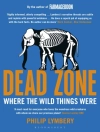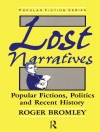Abraham Cowley’s ‘Cowley’s Essays’ serves as a rich tapestry of poetic reflection and philosophical inquiry, revealing the intersections of emotion, intellect, and nature. Composed in a time marked by the turmoil of the English Civil War and the Restoration, Cowley’s essays exhibit a mastery of the metaphysical style, blending personal memoir with broader cultural commentary. His exploration of topics such as love, solitude, and the pursuit of knowledge invites readers to engage with the deeper questions of existence, all rendered in his characteristic eloquence and wit. A key figure of the 17th-century literary scene, Abraham Cowley was not only a celebrated poet but also a thinker influenced by classical philosophy and the evolving thoughts of his contemporaries. His rich educational background at Westminster and later at Cambridge nurtured his intellectual pursuits, while the volatility of his era compelled him to seek refuge in introspection and expressive writing. Such experiences culminated in the essays, which reflect his desire to blend philosophical meditation with artistic expression. Readers will find Cowley’s essays not only illuminating but also profoundly resonant with the human experience, making it a recommended read for anyone interested in the philosophical and literary movements of the 17th century. For those seeking wisdom wrapped in lyrical beauty, Cowley’s work remains an invaluable resource, offering timeless insights that continue to speak across the ages.
Mengenai Pengarang
Abraham Cowley (1618–1667) was a prominent English poet and essayist, whose literary craftsmanship helped to usher in the metaphysical style of poetry in the 17th century. Primarily recognized for his poetic works, such as ‘The Mistress’ and ‘Pindarique Odes’, Cowley also made notable contributions to prose through his collection ‘Cowley’s Essays’. This particular work showcases his deftness in articulating both personal reflections and contemplations on the nature of the world, integrating a blend of wit, learnedness, and philosophical inquiry characteristic of his era’s literary sensibilities. His essays cover an eclectic range of subjects, including the writing process itself, an indication of his meta-textual awareness and his engagement with the intellectual discourses of his time. Cowley’s style is marked by elaborate metaphors and a penchant for melding the intellectual and the imaginative, which has both intrigued and challenged scholars and readers alike. Not as widely known today as some of his contemporaries, Cowley’s work nevertheless continues to be of interest for those studying metaphysical poetry and 17th-century English literature. His essays, in particular, provide a valuable lens into the prose of the period, reflecting the nuanced interplay between public and private expression that characterizes the Renaissance and early modern literary canon.












